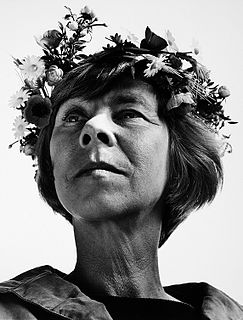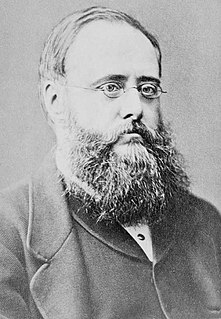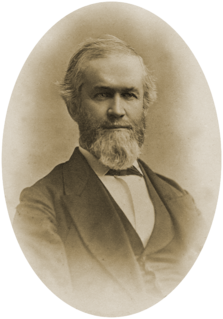A Quote by Herman Melville
When I think of this life I have led; the desolation of solitude it has been; the masoned, walled-town of a Captain's exclusiveness, which admits but small entrance to any sympathy from the green country without - oh, weariness! heaviness! Guinea-coast slavery of solitary command!
Related Quotes
Anyway, solitary people interest me. There are so many different ways of being solitary.' 'I know just what you mean,' said X. 'I know exactly what you're going to say. Different kinds of solitude. Enforced solitude and voluntary solitude.' 'Quite,' said Viktoria. 'There's no need to go into it further. But when people understand one another without speaking, it can often leave them with very little to talk about, don't you think?
Is there any wilderness of sand in the deserts of Arabia, is there any prospect of desolation among the ruins of Palestine, which can rival the repelling effect on the eye, and the depressing influence on the mind, of an English country town in the first stage of its existence, and in the transition state of its prosperity?
But, sir, the great cause of complaint now is the slavery question, and the questions growing out of it. If there is any other cause of complaint which has been influential in any quarter, to bring about the crisis which is now upon us; if any State or any people have made the troubles growing out of this question, a pretext for agitation instead of a cause of honest complaint, Virginia can have no sympathy whatever, in any such feeling, in any such policy, in any such attempt. It is the slavery question. Is it not so?
In terms of America, I think any profound consideration is bound to return us to the notion of twins because, though you certainly can contend there are many Americas, our history has been binary from the beginning, with its hairline fracture down the country's center between what American has wanted to be and what America has been. That fracture is slavery, of course. To some extent it's still slavery, in that collectively we refuse to come to grips with the American fact of slavery.
After almost exactly three hours, we rolled into a small hole of a town that had one traffic light and a resturant simply marked DINER. There hadn't been any traffic on the road for over an hour, though, which was really the most important thing. We hadn't been followed. Sydney drove us to a building with a sign that read MOTEL. Apparently this town liked to stick to the basics when it came to names. I wouldn't be surprised if it was actually just called TOWN.
Sixty thousand blacks are annually embarked from the coast of Guinea, never to return to their native country; but they are embarked in chains: and this constant emigration, which, in the space of two centuries, might have furnished armies to overrun the globe, accuses the guilt of Europe and the weakness of Africa.
In the world of the dreamer there was solitude: all the exaltations and joys came in the moment of preparation for living. They took place in solitude. But with action came anxiety, and the sense of insuperable effort made to match the dream, and with it came weariness, discouragement, and the flight into solitude again. And then in solitude, in the opium den of remembrance, the possibility of pleasure again.






































